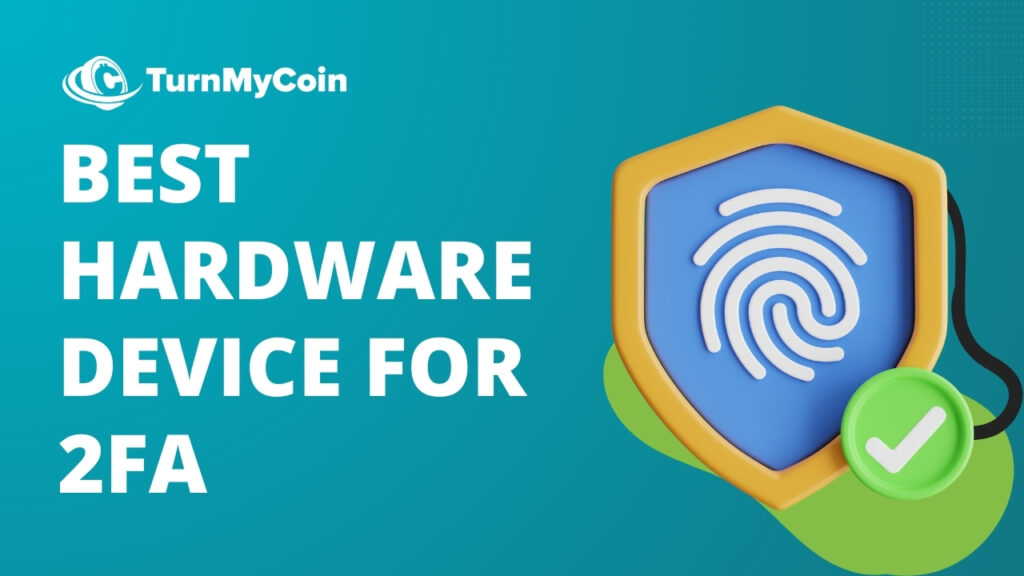Last updated on April 24th, 2024 at 07:10 am
Introduction
In the cryptocurrency security community, 2 Factor authentication (2FA) is a crucial barrier to unauthorized access. In simple words, 2FA requires individuals to type in 2 authentication techniques before accessing their accounts. This generally involves a thing the user understands (a password) and also something they own (a hardware device).
Although there are numerous ways of applying 2FA, hardware devices have gained recognition as a result of their improved security features. This article discusses crypto hardware devices for 2 factor authentication.
Table of Contents
Understanding 2-Factor Authentication in Cryptocurrency
Cyber threats to Cryptocurrency holdings are numerous. Unauthorized access might cause economic problems and breach user privacy. hardware devices for 2 factor authentication provide a formidable defence besides conventional password-based security. Here are some of the key points for our discussion:
- Knowledge-Based (Passwords) Traditional password-based authentication is vulnerable to breaches. Cybercriminals utilize phishing and brute force techniques to get passwords.
The dependence on passwords alone exposes users to dangers which could be exploited. Passwords are easily stolen, social engineering and other cyber threats. As cryptocurrency transactions include important assets, relying on passwords alone is a weak security measure. - Possession-Based (Hardware products) Possession-based 2FA requires physical Devices or tokens which users possess. These devices generate unique codes or need physical interaction, making them even more complicated for an attacker.
The primary benefit of possession-based 2FA is it resists hacking attempts. Even when a user’s password is hacked, access is denied without the physical hardware device. This makes it an excellent tool for safeguarding cryptocurrencies.
Let’s discuss the use of hardware devices for 2 factor authentication in detail below.
Why use hardware devices for 2 Factor Authentication?
- Hardware security tokens: Hardware security tokens are physical products which create time-sensitive codes or even require user intervention to authenticate. They’re portable and small for user convenience.
- USB security keys inserted right into a PC’s USB port, USB security keys provide a level of protection. They may support standards such as Universal 2nd Factor (U2F) for secure authentication.
- Biometric Authentication Devices utilize distinctive physical traits like facial recognition or fingerprints to verify user identity. This offers extra security depending on individual characteristics.
Best Crypto Hardware devices for 2 Factor Authentication
1. YubiKey 5 Series: One Multifaceted Security Solution

The YubiKey 5 Series appears as a strong security system that supports different authentication protocols as U2F and FIDO2. This series offers a single sign-on across several platforms and it is a staunch defender against phishing and unauthorized access attempts because of its rigorous encryption demands.
The YubiKey Nano is a smaller variation of the bigger models yet with the exact same security capabilities in a condensed form. Its tiny size targets users who need portability without sacrificing security. Having the same excellent security choices as its bigger versions, the YubiKey Nano fits in tiny areas such as ultra-portable laptop computers or tablets.
In cybersecurity, the YubiKey 5 Series and YubiKey Nano each provide distinct benefits to users searching for optimum protection for their electronic assets. These devices provide flexible solutions for secure authentication and protection against threats.
Whether it is the robust YubiKey 5 Series or the powerful and light YubiKey Nano, users can take pleasure in the digital world with confidence & ; peace of mind.
2. Thetis FIDO U2F Security Key: Affordable U2F Authentication
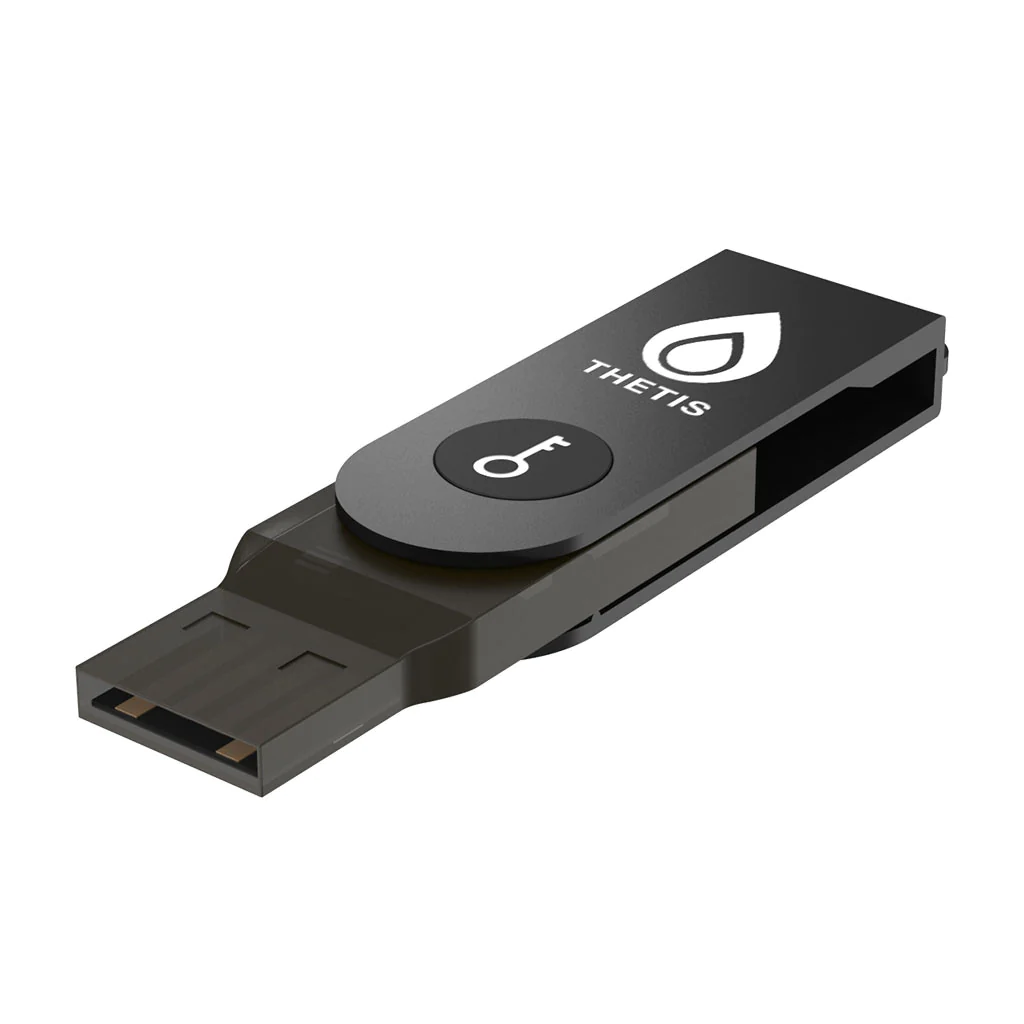
For all those searching for low-cost hardware, the Thetis FIDO U2F Security Key looks attractive. It specializes in U2F authentication and works with many platforms, making it an appealing option for cryptocurrency enthusiasts searching for a low cost but robust protection choice.
3. Solo – Open Source Security Key: Customized Transparency
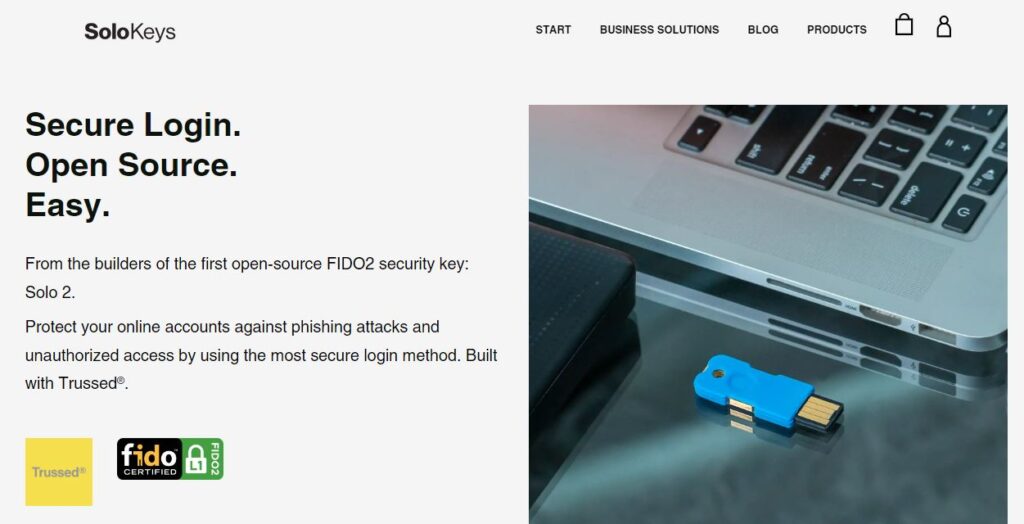
In the open source security keys world, Solo is the star. What makes Solo unique is its customized firmware that allows audits by anybody checking out its security features. This transparency generates trust in the cryptocurrency space.
In addition, Solo supports a selection of authentication standards to appeal to a variety of individuals.
4. SecuX V20 F: Biometric Authentication
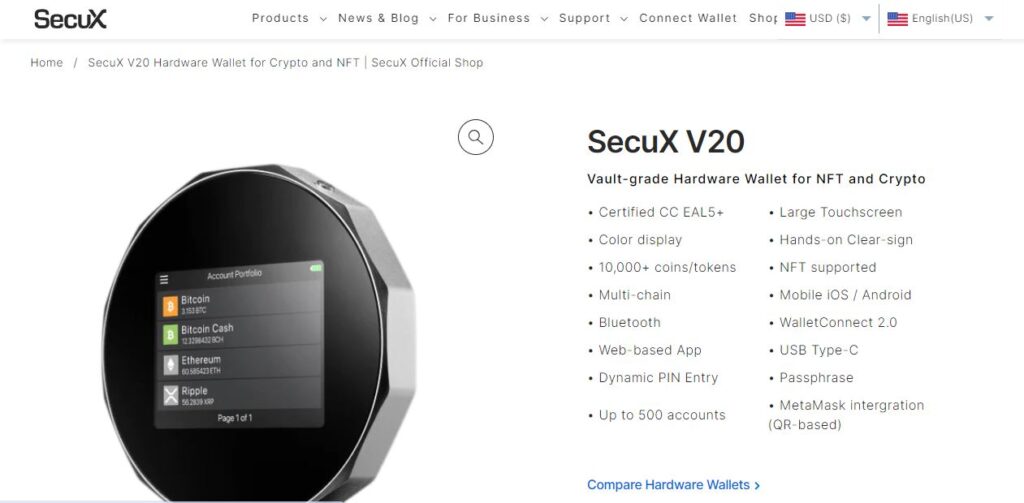
SecuX V20 F combines biometric authentication with traditional security – yet – usable protection. Its sleek design and easy user interface draw some buyers seeking a compromise between ease of use and improved security.
SecuX V20 F demonstrates that adaptability and user centric design are important words in the hardware wallet space as the threat landscape evolves.
5. HyperFIDO Titanium U2F Security Key: Compact Powerhouse
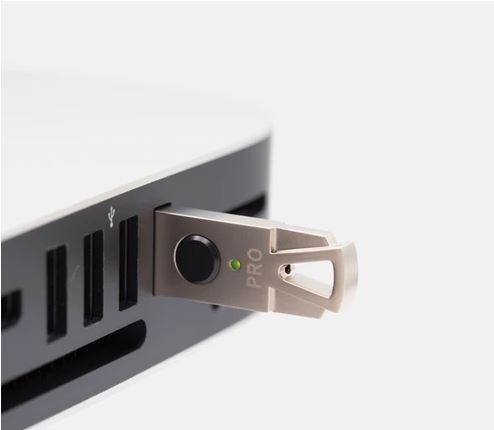
And finally, there is the HyperFIDO Titanium U2F Security Key, a tiny device that delivers a huge bang for U2F authentication. Its difficult build causes it to be a longtime option for those who appreciate their hardware wallet for a long time.
The HyperFIDO Titanium U2F security Key demonstrates that size should not be a deterrent to strength with regards to cryptocurrency Security.
Uses Hardware devices for 2 factor authentication: Cryptocurrency Exchanges.
- Crypto hardware devices for 2 Factor Authentication: Major exchanges Cryptocurrency Exchanges like:
- Best practices for Exchange Users Users who trade cryptocurrency should stick to best practices when using hardware devices for 2 factor authentication. This includes frequently updating firmware, storing backup codes and reporting lost or compromised hardware products.
Future Trends & Innovations
There are two welcome developments that can happen for hardware devices for 2 factor authentication in the time to come.
A. Hardware Security Advancements.
- Biometric Enhancements: advanced biometric features like retina or voice recognition might enhance hardware device security. This biometric layer provides another level of uniqueness to user authentication.
- Integration of Secure Elements Specialized hardware components which perform security functions is being integrated into hardware device design. Secure components in devices like YubiKey offer greater protection against threats.
B. Regulatory Developments.
- Compliance standards for Crypto hardware products As the cryptocurrency industry matures, some regulatory bodies will probably set Standards for Hardware Devices. Compliance with such standards is a driving force for the creation and adoption of these devices.
- Cooperation with regulatory bodies Hardware device makers may collaborate with regulatory bodies to build industry standards which will apply to all crypto assets.
Conclusion
Cryptocurrency security is a changing landscape and the move towards hardware devices for 2 factor authentication is a major step in that direction. While technology improves and legal frameworks change, security measures are going to continue to develop to safeguard the property and security of cryptocurrency users.
Accepting these advancements enables people to navigate the digital landscape knowing their assets are secured by robust and innovative security systems. While users navigate the volatile cryptocurrency space, hardware devices for 2 factor authentication are likely to continue to increase in adoption.
Budget-friendly options and robust backup are addressing challenges including cost considerations and recovery protocols.
Future possibilities include biometric feature enhancements and collaborations with regulators to build common industry standards.
The road towards a resilient and secure cryptocurrency ecosystem not just includes development of superior hardware equipment but also constant education and collaboration to allow users to cross the digital frontier securely and safely.
